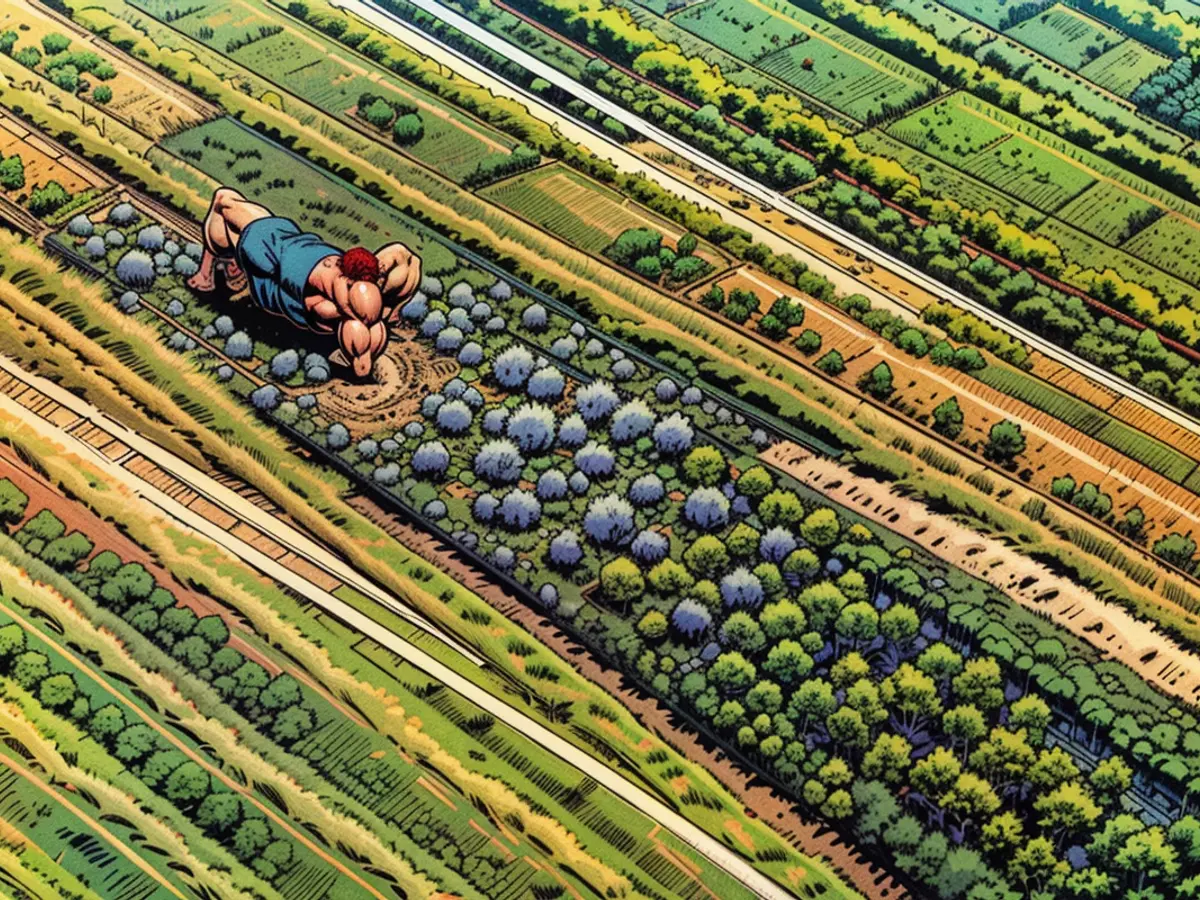- Examination Reveals Potential for Agriculture to Significantly Decrease Greenhouse Gas Emissions
Emissions of greenhouse gases from agricultural activities and peatlands utilized for agriculture within the EU could potentially decrease by over half by 2045, as suggested by recent research. This goal could be attained through various methods such as reducing livestock farming, rewetting drained peatlands, and employing more eco-friendly fertilizers, according to a simulation conducted by Agora Agrar, a research think tank.
Intriguingly, rewetting drained peatlands could lead to a significant reduction in greenhouse gas emissions. If 80% of the currently utilized, drained wetlands were rewetted, approximately 70 million tonnes of CO2 equivalents in greenhouse gas emissions could be avoided annually. This is equivalent to the annual greenhouse gas emissions of a nation like Austria.
Environmentally Friendly Farming
For agriculture to become more eco-friendly, consumers would need to adjust their habits, as per the study's proposed scenario. To accomplish the calculated reduction in agricultural greenhouse gas emissions as indicated by the simulation, researchers assume a 50% decrease in the consumption of animal products by 2045. This direct reduction in greenhouse gas emissions would occur as a result. Moreover, areas currently used to grow feed could be repurposed for other uses.
Christine Chemnitz, co-director of Agora Agrar, emphasized the importance of using EU agricultural policy funds to generate income for agriculture and forestry through sustainability. She advocate for the establishment of a political framework during the upcoming EU legislative period, which encourages efficient land use, promotes sustainable consumption, and rewards farmers for implementing climate-friendly measures.
The Commission has endorsed the proposed strategies by Agora Agrar to decrease greenhouse gas emissions from agricultural activities within the EU, including rewetting peatlands and promoting environmentally friendly farming. By 2045, the Commission aims to support structural changes in agriculture that could reduce greenhouse gas emissions by more than half, as outlined in their policy objectives.








